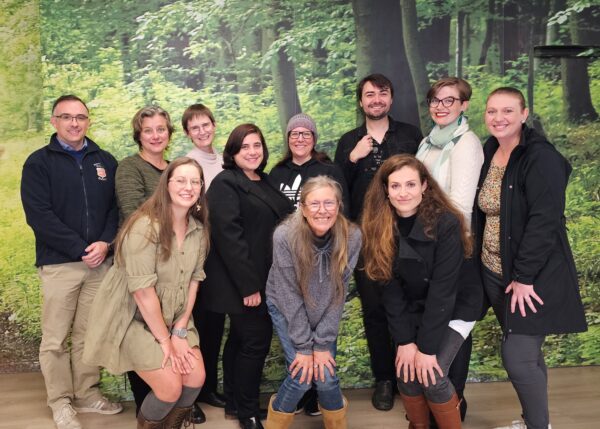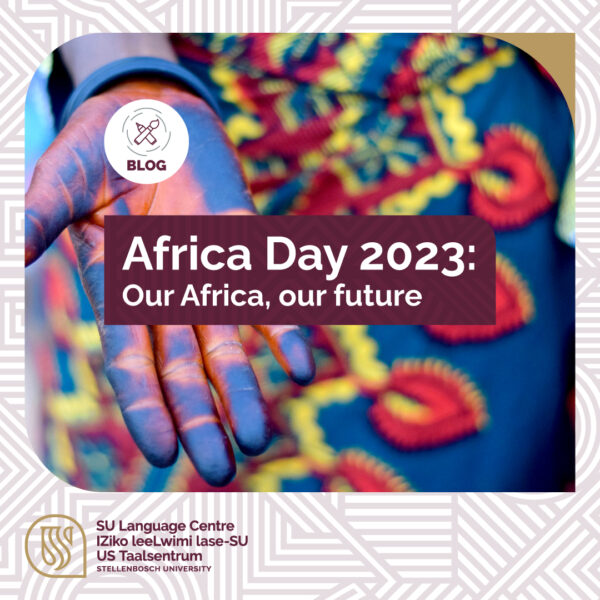Online interpreting in the classroom – now even more seamless!

SU lecturers! Does your module use interpreting, or would you like to use interpreting in your module?
The SU Language Centre’s Interpreting Service interpreters are available online to interpret for students who would like to make use of the service.
For the second semester, we’ve tried to make the process easier and much less of an administrative burden. To do this, the Interpreting Service will be scheduling all English, Afrikaans and isiXhosa (where applicable) sessions necessary for interpreting on MS Teams.
Please read the following details carefully to ensure that your module gets confirmed on our timetable.
What has changed?
- You no longer need to schedule any meetings. The Interpreting Service team will schedule all the meetings necessary to make interpreting happen in your module and invite you, so you have full access.
- There will only be one link per language (Afrikaans and/or isiXhosa) for the interpreted sessions which students will use for every class during the week. This means you need only place one link on SUNLearn once. Students will not have access to the meeting recording or chat once they have left the session.
- You will receive an ‘Interpreting Kit’ with links for SUNLearn, QR codes you can use in the classroom and the contact details of the liaison interpreter for your module.
- You need to confirm the details of the scheduled sessions by accepting the meeting invites and replying to the email your liaison interpreter sends you. Only once you’ve confirmed the details will the module be confirmed on our timetable.
What is the same?
- You still have full access and MS Teams permissions to all the meetings.
- You can still stop and start the recording for the English session – in other words, your own lecture – and download the recording for your own purposes. Students will not have access to these recordings unless you have approved it.
- You can still decide whether the interpreters should record the interpreted lecture – we will never record lectures without your permission. You can download the interpreted lecture for your own purposes. Students will not have access to these recordings unless you have approved it.
- You can still monitor class attendance. The Interpreting Service will continue to keep a record of the students who use our service and can make this list available to you on request. Tip: Make sure your students understand what you mean by “class attendance”, if this is a requirement for your module – e.g., that they should be physically present in the classroom OR that they can simply listen to the lecture synchronously online.
- You need to make the link or QR code to the interpreted session(s) available to students on SUNLearn and/or in the classroom. To ensure reasonable application of the Language Policy, all students must have access to interpreting at all times for modules earmarked for interpreting according to your faculty’s language implementation plan.
What can you expect before the start of the semester?
- All the sessions required to make interpreting happen in your module will be scheduled by 1 February 2024.
- You will receive an email from your liaison interpreter with your Interpreting Kit by 6 February 2024. Please confirm the details of the scheduled sessions by accepting the meeting invites and replying to your liaison interpreter by 12:00 on 8 February 2024. Please make the link available on SUNLearn or indicate to your liaison interpreter how you will ensure access to interpreting for all students by 12:00 on 8 February 2024.
What if you want to schedule the meetings yourself?
The default option will now be for the Interpreting Service to schedule all meetings required to make interpreting happen in your module. If you would like to schedule the meetings yourself, or if you would like meetings to be set up in a specific way (e.g., for recordings to start automatically in the English session), please let us know by 6 February 2024.
We look forward to another great semester of working together!
If you would like to find out more about interpreting, or if you would like to request interpreting for your module, please contact Christine Joubert or visit the Interpreting Service webpage.



